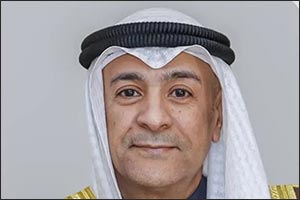 Kuwait, September 2, 2025, SPA -- Secretary-General of the Gulf Cooperation Council (GCC) Jasem Albudaiwi affirmed that the partnership between the GCC states and Japan is not only based on economic and political interests, but on a shared vision for a future of peace and sustainable development.
This came during his speech at the second GCC-Japan Joint Ministerial Meeting, held on Monday in Kuwait. It was chaired by Minister of Foreign Affairs of the State of Kuwait and current President of the Ministerial Council Abdullah Ali Al-Yahya, with the participation of the ministers of foreign affairs of the GCC states, and Minister for Foreign Affairs of Japan Iwaya Takeshi. Albudaiwi stated that the joint meeting came in the midst of rapidly evolving international political, economic and security developments, requiring greater solidarity and stronger partnerships to face shared challenges, from food security and climate change to energy security and digital transformation, where the depth and value of the collaboration with Japan becomes evident. He also pointed to several notable steps in the partnership between the GCC states and Japan. In 2012, they signed a Memorandum of Understanding (MoU) on strategic dialogue and cooperation, which established a framework for consultation on politics, security, trade, and culture. More recently, they launched the 2024-2028 Joint Action Plan, expanding the partnership to include the digital economy, clean energy, food security, and advanced healthcare. Furthermore, negotiations for a Free Trade Agreement (FTA) officially began with the signing of a joint statement in July 2023, with two rounds of talks already held. Through this agreement, both sides aim to remove tariff and procedural barriers, facilitate trade and investment, and address issues related to health, phytosanitary measures, intellectual property, and other matters of mutual interest. The Secretary-General said: 'The volume of trade exchange grew in 2024 to reach $115 billion, including $84 billion in Gulf exports, most of which were oil, gas and petrochemicals, and $31 billion in imports from Japan in the fields of automobiles, technology and advanced industrial products.' He continued: 'Japanese investments in the GCC countries have grown to exceed $15 billion in sectors like renewable energy, digitalization, and smart industries. This reflects Japan's deep confidence in our economic environment. We've also signed Memoranda of Understanding with major Japanese companies to develop green hydrogen and blue ammonia projects in the United Arab Emirates, Saudi Arabia, and Qatar, supporting the global transition toward net zero by mid-century. In the field of education, the number of Gulf students in Japanese universities has increased by 25% since 2020. To further enhance knowledge transfer and capacity building, both sides have expanded academic and research exchange programs.' Elaborating further, the Secretary-General said in his speech: 'In healthcare, pioneering initiatives were launched in digital medicine and medical artificial intelligence, which enhanced the quality of healthcare and opened wider prospects for joint research and development. Culturally, the participation of all six GCC states in Expo 2025 Osaka constituted a milestone reflecting the depth of this partnership with Japan. At the conclusion of his speech, Albudaiwi outlined a vision for future cooperation in several key areas. He looked forward to strengthening strategic consultation to ensure regional stability and the security of maritime routes. He also called for investment in the digital economy, artificial intelligence, clean energy, and carbon capture technologies. Furthermore, he emphasized developing cooperation in food security and sustainable agriculture, as well as expanding cultural and tourism exchange by leveraging major events hosted by GCC states. He concluded by highlighting the importance of joint work to achieve carbon neutrality by mid-century.
|